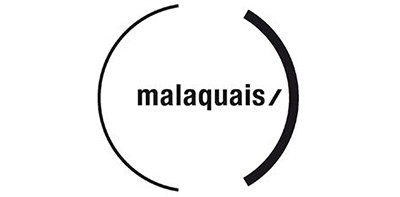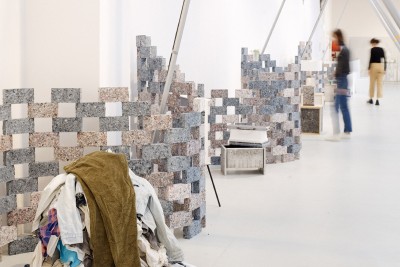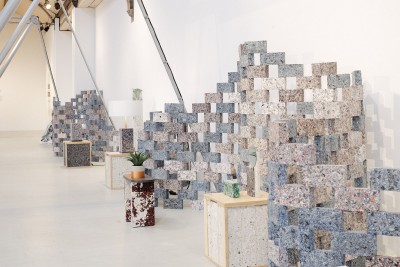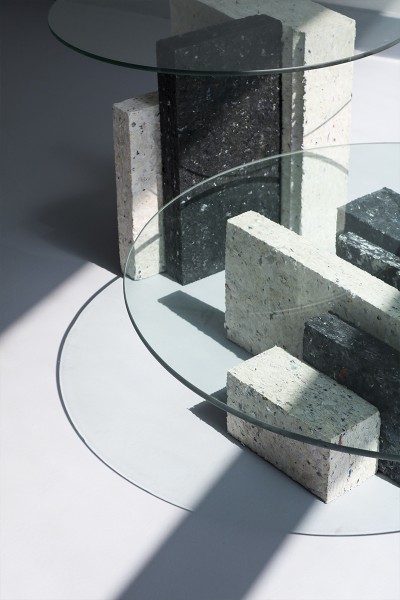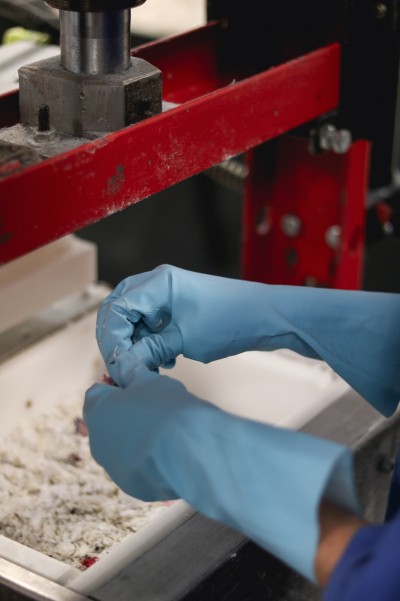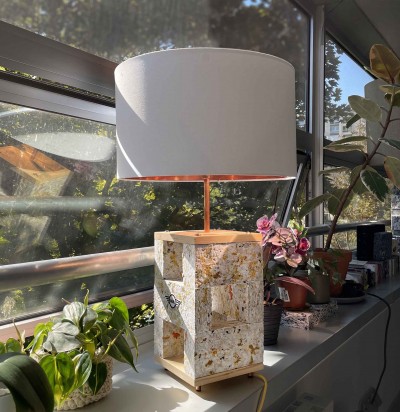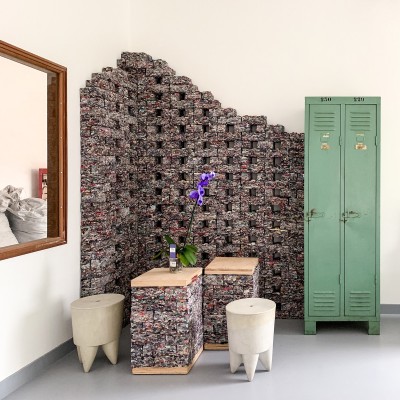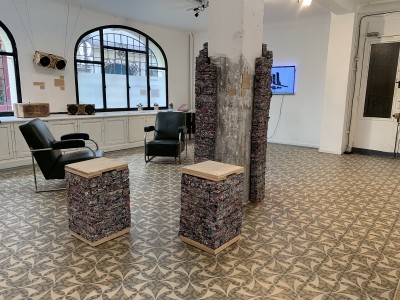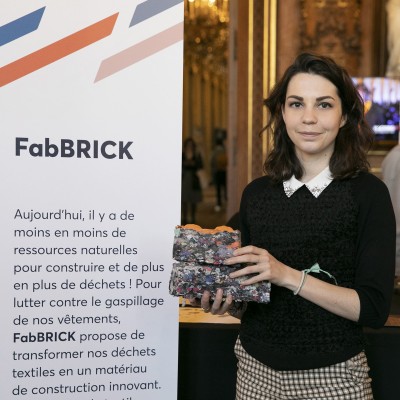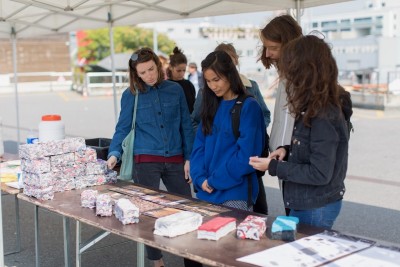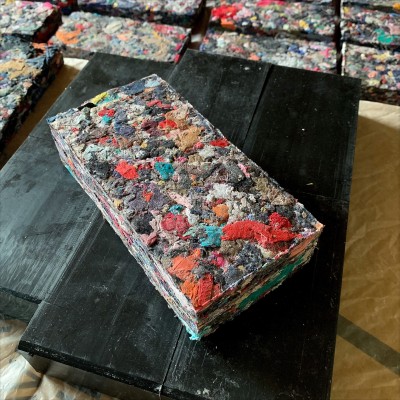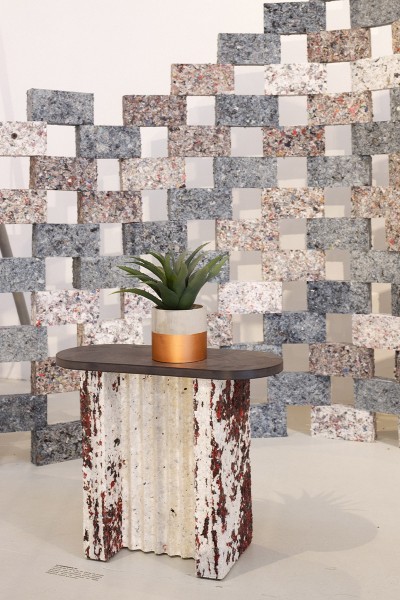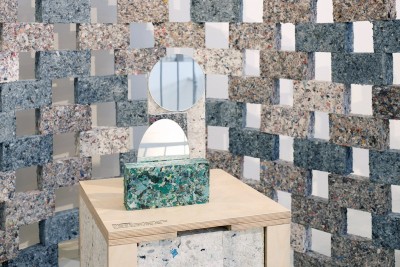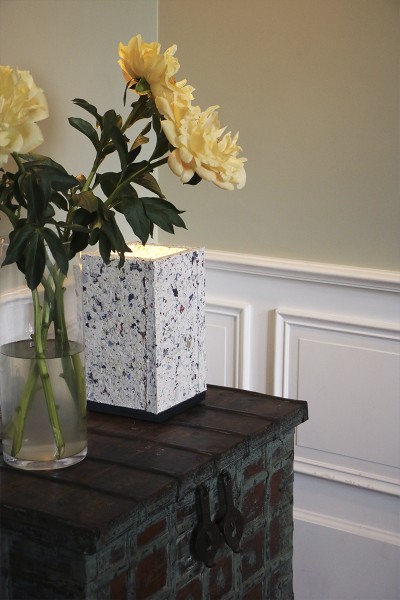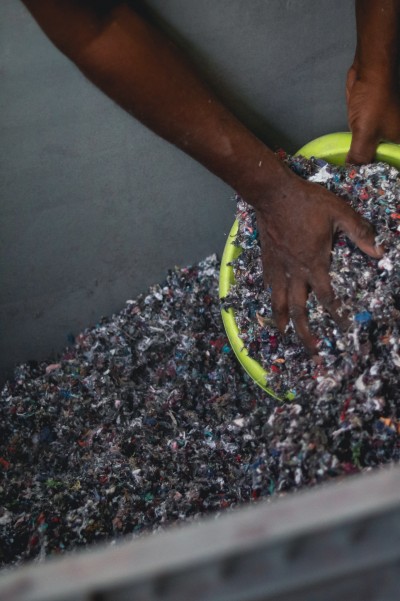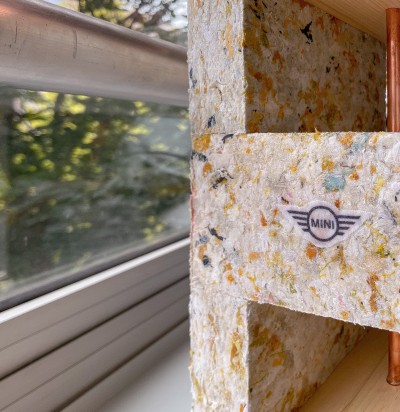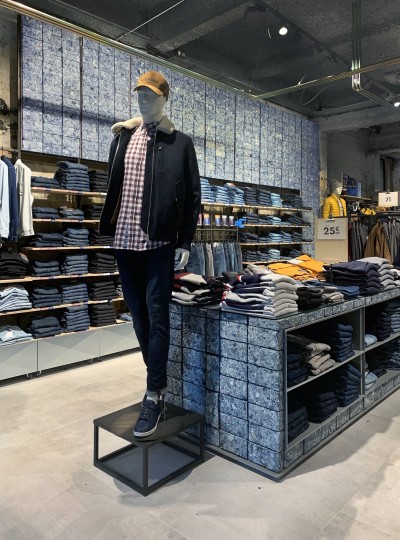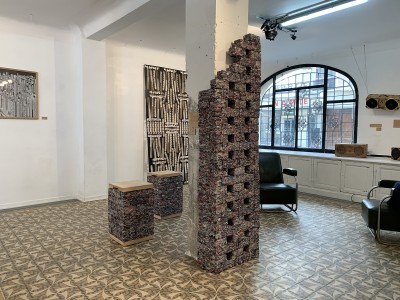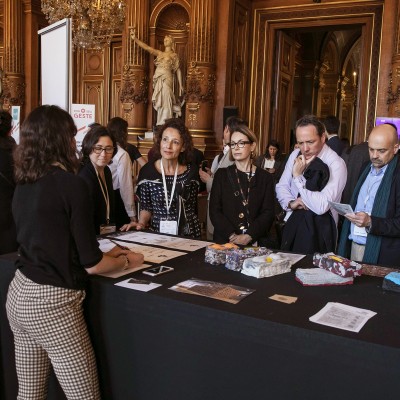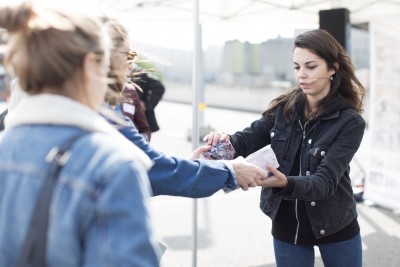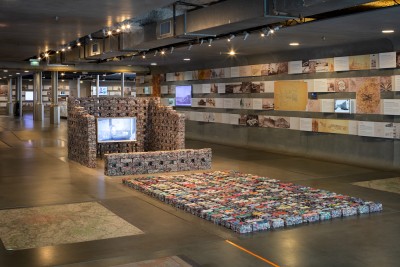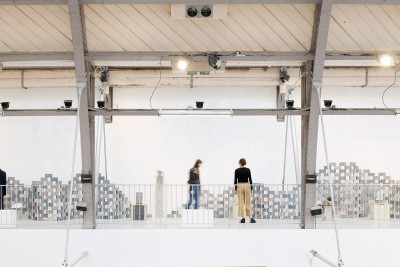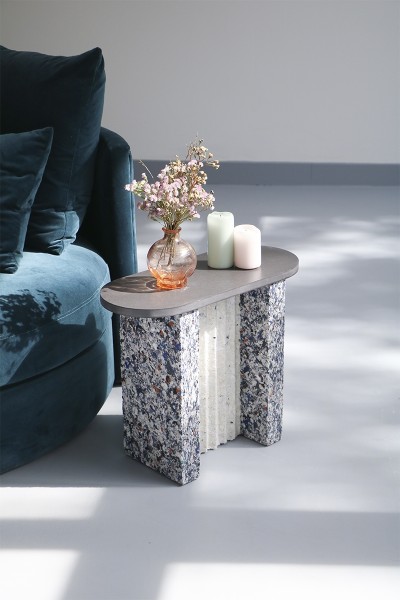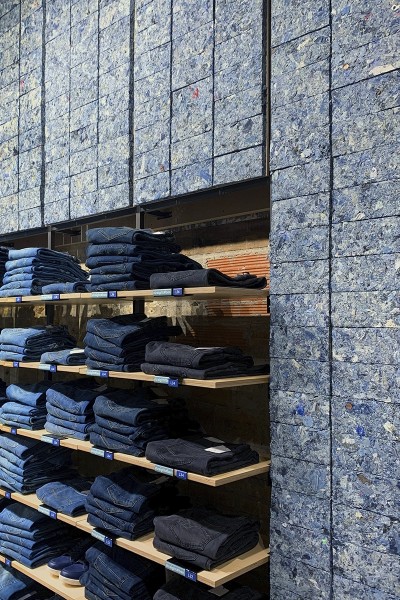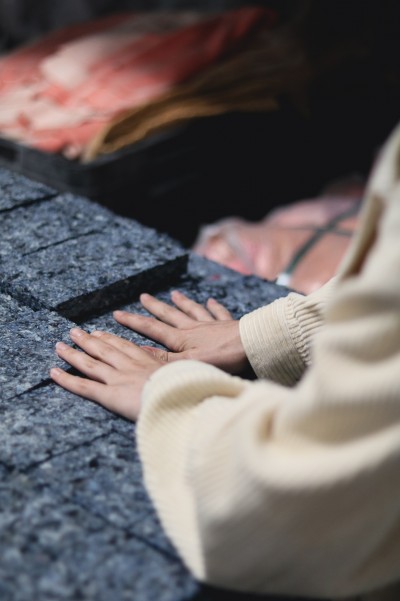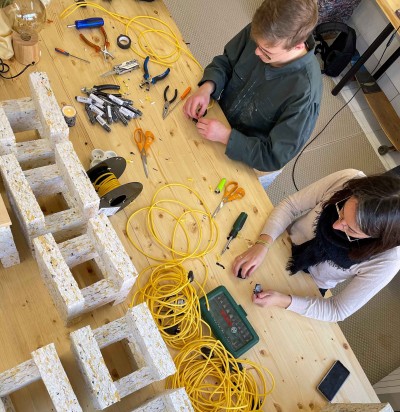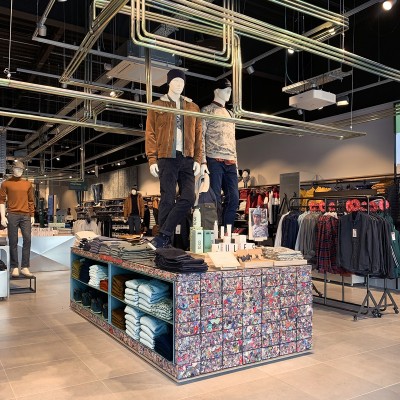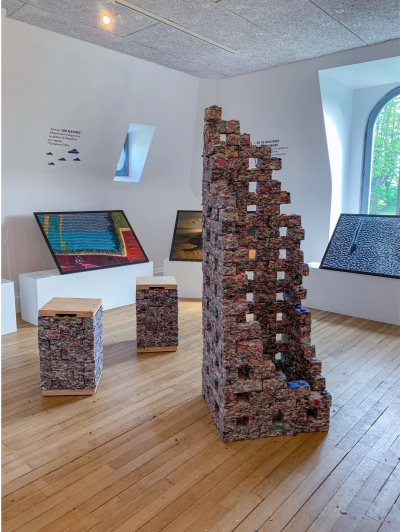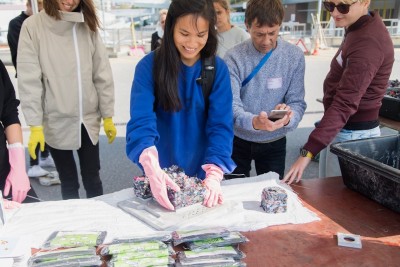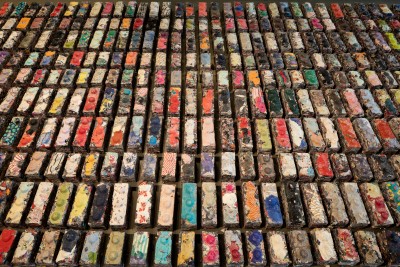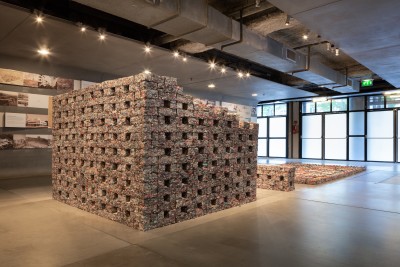From July to September 2017, FabBRICK entered an experimentation phase at the Pavillon de l'Arsenal to transform t-shirts made from unusable cotton into construction material.
SEPTEMBER 2022 : EXHIBITION "LIMITED SERIES"
FabBRICK, M.E.G.A, Terres émaillées
3 projects supported by FAIRE*
Free entry from September 8 to 25, 2022
Though design is, by nature, approached through form, contemporary objects are primarily about flows. They tie up, for a time, a certain amount of materials and energy that contribute to their making. Their manufacture involves multiple inputs of production, including materials extracted from mines and deposits, and draws on technical capabilities to duplicate manufactured parts. On a medium and, particularly, a large scale, there are a number of current challenges surrounding production that are highly relevant, including resource depletion, energy use, transport distance, and end-of-life management. Can we still provide the same level of value and pleasure while reducing the impact of production flows? Such is the ambition of the three projects undertaken by Clarisse Merlet, Niveau Zéro Atelier, and Lucie Ponard. Each calls into question the resources, localities, and shaping processes.
An architect by training, Clarisse has been exploring the potential of textile scrap from the Île-de-France region since graduating in 2017. Through FabBRICK, the company she founded (which now employs a dozen individuals), clothes and used textiles are transformed into furniture or architectural elements. The pieces that are produced (and sometimes commissioned by suppliers from their production scrap) form a differentiated series of objects that are neither completely geminate, nor completely dissimilar.
PROJECT DESCRIPTION
So as to lessen the increasing lack in natural resources for construction, FabBRICK suggests using our waste. Annually and on a global level, waste represents 4 000 billion tons. This potential new resource includes interesting construction materials. For example, cotton could provide good sound and thermal insulation, and is present in most of our clothing. In France 400 000 cotton t-shirts are thrown away yearly, but they could now be re-used in construction.
By working together with a textile-sorting centre, FabBRICK proposes to create bricks made from t-shirts. These used-cotton t-shirts, bound with a natural binder and then compressed in a made-to-measure mould become an innovative, ecological material. These insulating, structural, auto-blocking bricks can then be used to partition our homes.
Follow the progress of the project on the FabBrick website and on Instagram !
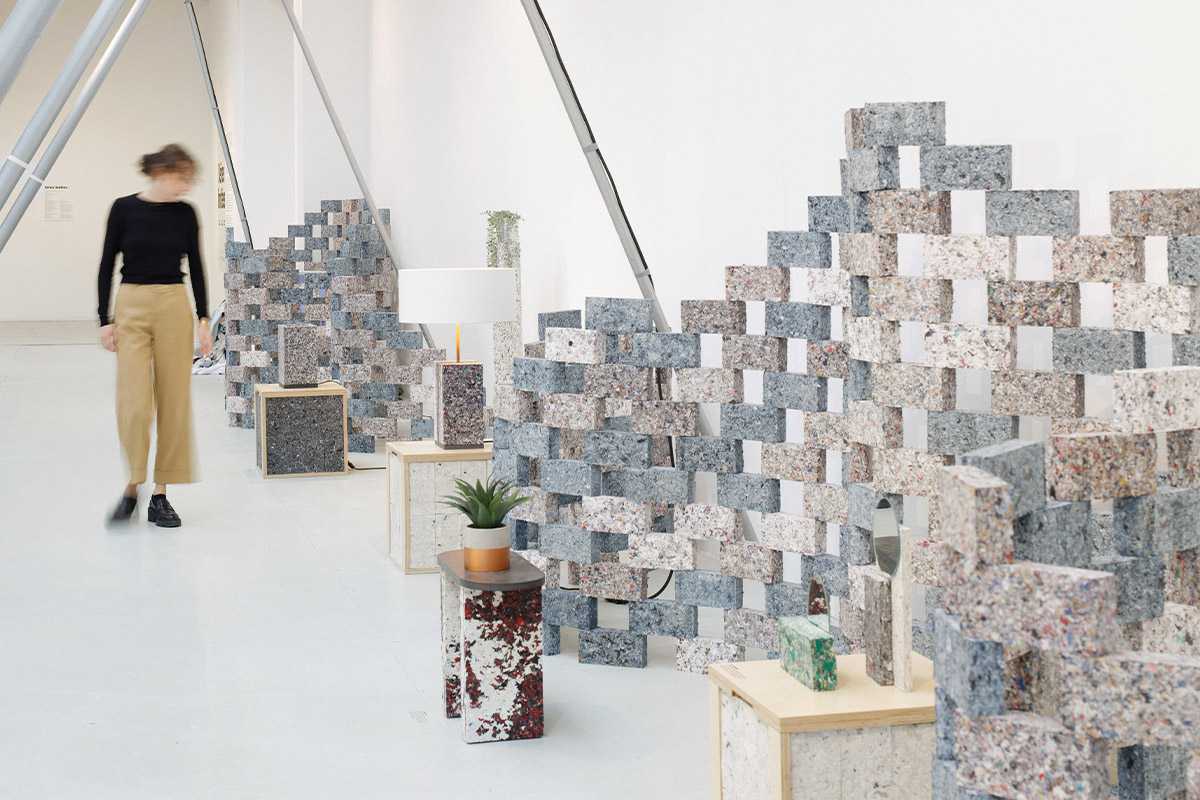
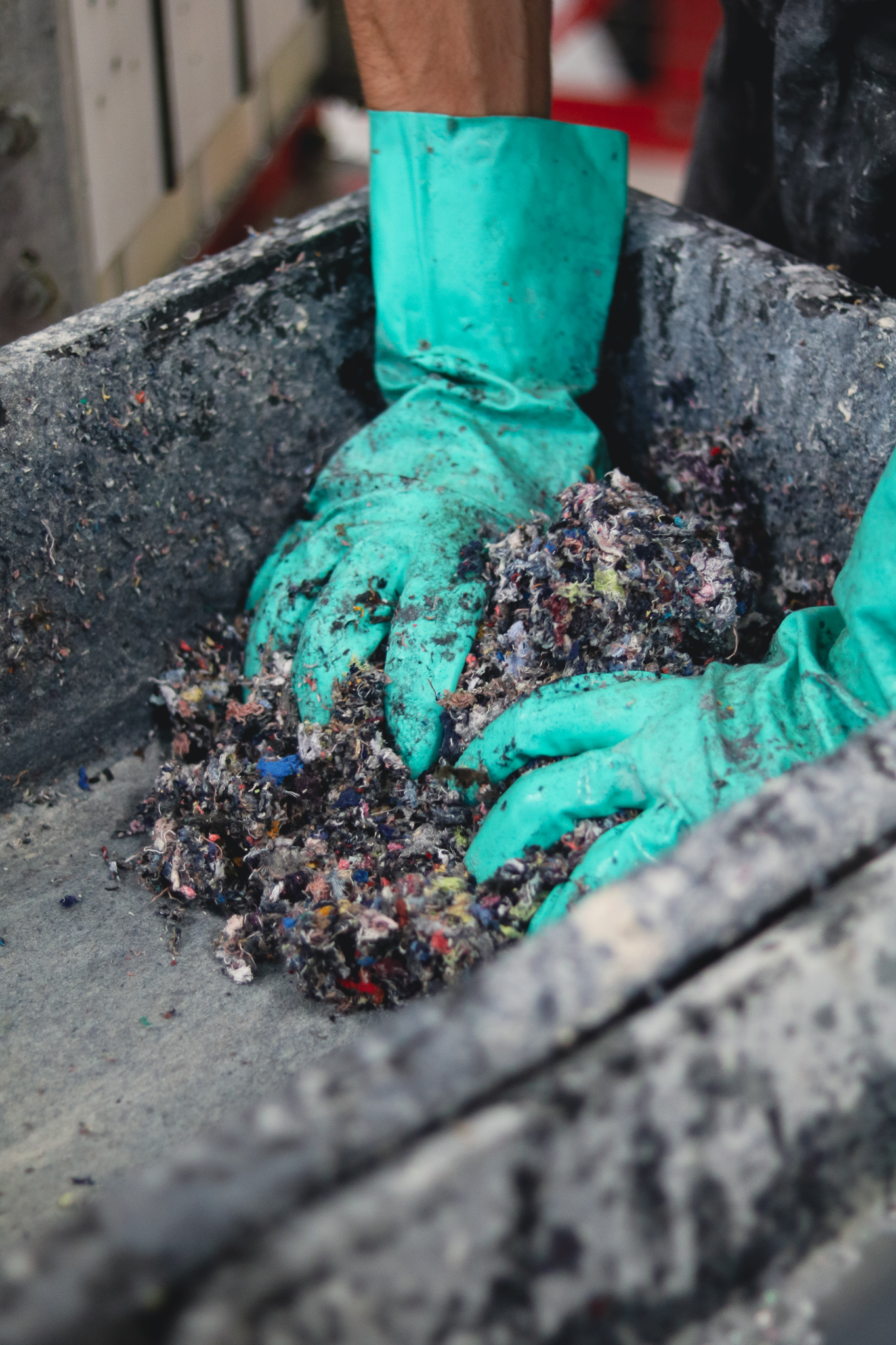
PROJECT PARTICIPANT
Clarisse Merlet
As a third-year student in architecture, Clarisse Merlet realized that the construction sector is very polluting and energy-intensive. She set off to find an alternative that would make it possible to build differently, focusing on waste in particular. Her research evolved into the topic of her final graduation project and grew to become its own entity, FabBRICK. Bringing together several partners and many clients, FabBRICK is an organization based in the 19th arrondissement of Paris which currently employs a dozen artisans tasked with transforming clothes and waste textile into furniture and architectural elements.



